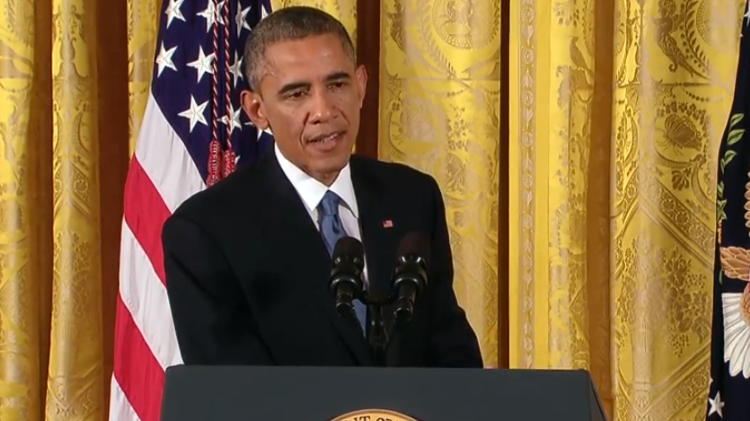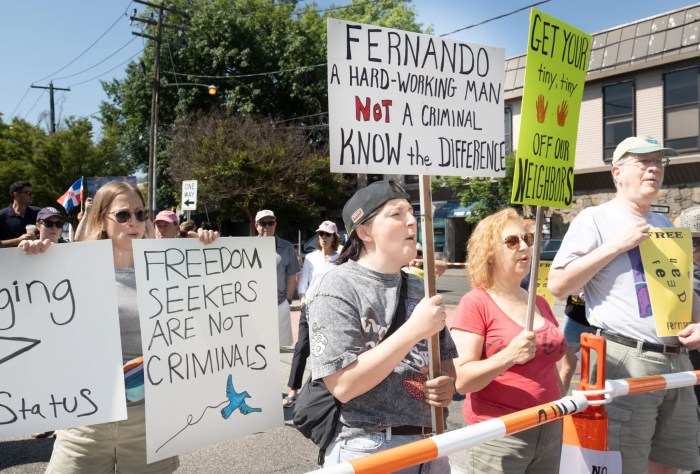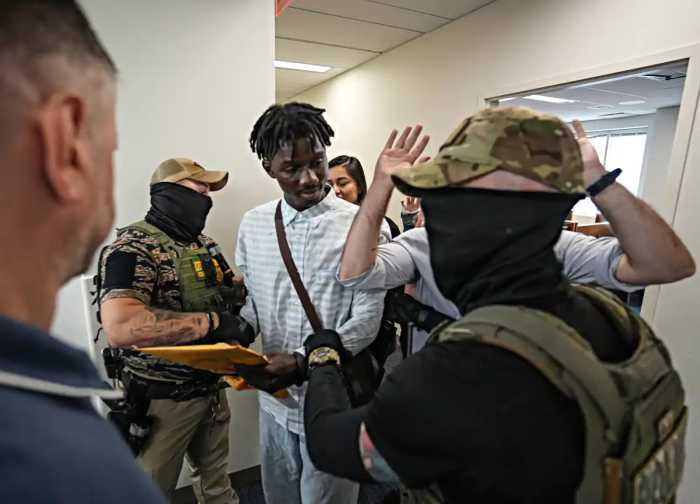President Obama commuted the sentences of 22 people on Tuesday, doubling the number of commutations he has granted during his administration in just one day. The decision follows a push from the Justice Department last year to grant clemency to nonviolent prisoners, many of whom had been sent to prison under the harsh sentencing laws and aggressive anti-crime policies that were originally implemented during the 1980s and 1990s.
Mark Osler, a professor at the University of St. Thomas School of Law and the founder of the nation’s first law school clinic on federal commutations, said that the president’s action is not only historic, but also represents a commitment. “This is intended to be a message of hope,” Osler told ProPublica. “There are thousands of Americans who are going to read this and say that’s like my case or my father’s case. Now, the president has to follow through and take that seriously.”
In April 2014, the Justice Department announced a new initiative to fast-track clemency petitions for prisoners who, under today’s sentencing laws, would have received a substantially lower sentence for the same offense. To speed up the application process, the Justice Department introduced new criteria to help prioritize the petitions, stating that the agency would prioritize non-violent offenders who had served more than 10 years of their sentences.
Alongside the announcement of the new initiative came the removal of the Justice Department’s Pardon Attorney, Ronald Rodgers. In 2012, ProPublica and the Washington Post revealed that Rodgers had failed to disclose critical information in recommending that the White House deny the petition of Clarence Aaron, who was sentenced to three life terms for minor involvement in a drug deal.
Following our reporting, Obama granted Aaron clemency, after he spent two decades in prison.
Like Aaron, all of the individuals who were granted clemency last week were serving sentences longer than 10 years for non-violent drug crimes. The White House reported that President Obama penned letters to each of them.
“Thousands of individuals have applied for commutation, and only a fraction of these applications are approved,” the president wrote in one letter to Terry Andre Barnes, who was sentenced to more than 20 years in prison in 2005 for conspiracy to distribute cocaine.
“I am granting your application because you have demonstrated the potential to turn your life around. Now it is up to you to make the most of this opportunity.”
Margaret Love, who served as U.S. Pardon Attorney for the Justice Department from 1990 to 1997 and now represents petitioners, recognizes the need for further action. “I know that the president is committed to redressing some of the wrongs of federal sentencing,” she said, “but I think he is going to need to put a system in place for handling hundreds as opposed to dozens of cases that deserve a sentence reduction.”
A ProPublica review of Justice Department statistics in 2012 found that Obama had granted fewer petitions for pardon than the four preceding presidents at similar points during their administrations. To date, Obama has granted only 3.4 percent of petitions for pardons and commuted less than one percent of petitions for clemency. He has denied more than 9,000 petitions.
According to the Justice Department, nearly 8,700 individuals are still waiting for their petitions to be reviewed.
ProPublica is a Pulitzer Prize-winning investigative newsroom. Sign up for their newsletter.

































